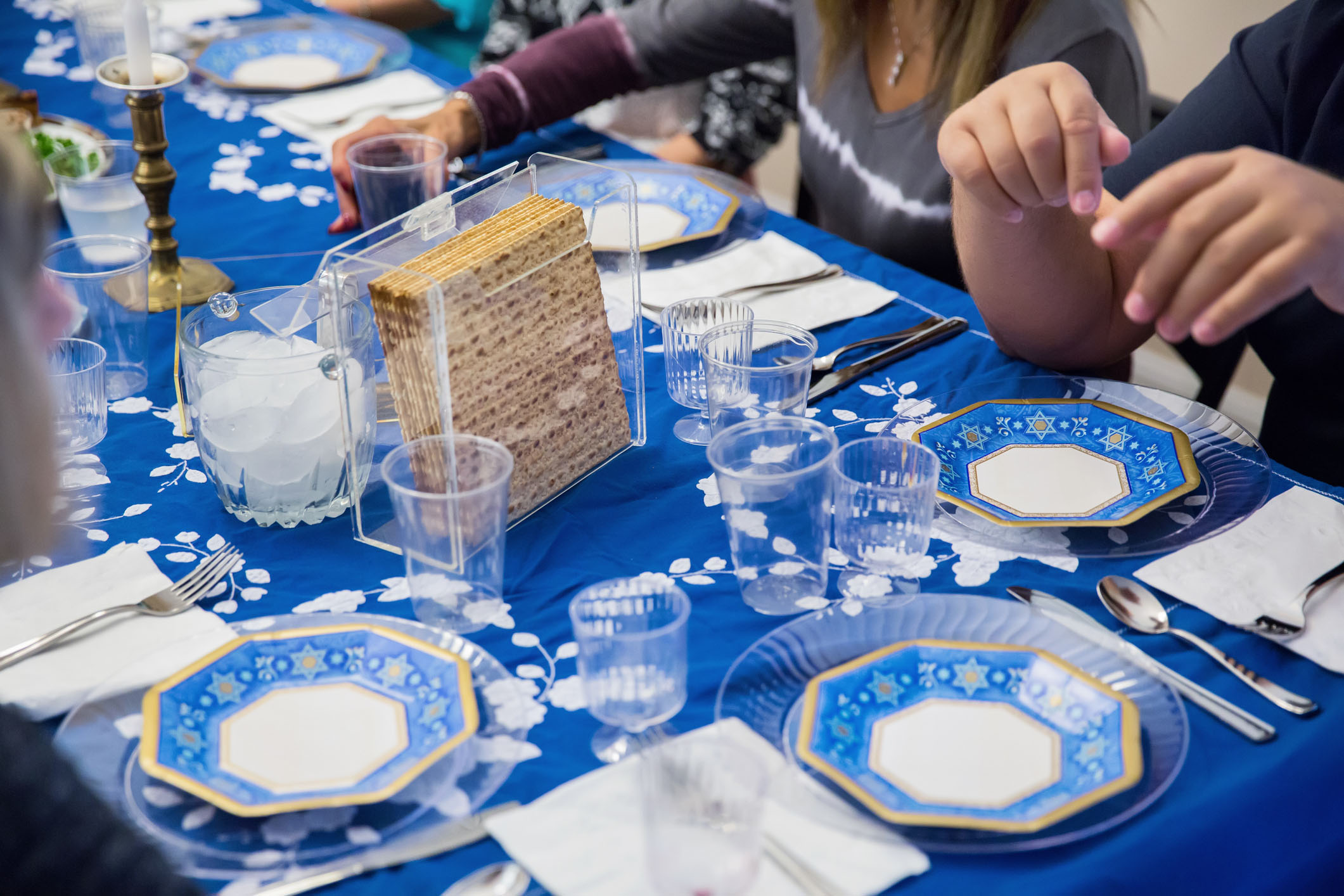 JodiJacobson/Getty Images
JodiJacobson/Getty Images With the war in Israel raging and emotions running hot, we are likely to spend a seder (or two) with friends or family with whom we have sharp disagreement. This all raises the question: At a time of war, how can we conduct our seders in peace?
Perhaps the best advice is found from the haggadah itself in the famous story of five rabbis pulling a Passover all-nighter in Bnei Brak:
It happened once [on Pesach] that Rabbi Eliezer, Rabbi Yehoshua, Rabbi Elazar ben Azariah, Rabbi Akiva and Rabbi Tarfon were reclining in Bnei Brak and were telling the story of the exodus from Egypt that whole night, until their students came and said to them, “The time of [reciting] the morning Shema has arrived.”
Most likely, this text can be dated to the short period of time during which Rabban Gamliel, the nasi or spiritual leader of the community, was deposed. Why was Gamliel removed from office and conspicuously absent from the Bnei Brak seder? The Talmud teaches that when he was the nasi, Rabban Gamliel appropriately expected those with opinions that deviated from his own to accept his legal rulings, but he was not gracious in victory. When his own assistant, Rabbi Yehoshua (who was at the Bnei Brak seder), voiced dissenting legal opinions even while accepting Rabban Gamliel’s ultimate authority, instead of graciously accepting his colleague’s deference, Gamliel embarrassed Yehoshua with dictatorial vengeance. This occurred several times before the rabbis banded together and replaced Gamliel with an upstart scholar, Elazar ben Azariah (another one of the rabbis from the Bnei Brak seder).
In his haggadah, Rabbi Jonathan Sacks observes that the five rabbis are listed according to the seating arrangement at the table at Bnei Brak. The newly ascendant nasi, Elazar Ben Azariah, assumes the most honored place at the table – in the middle, a seat fitting for the head of the community. He is surrounded by the other rabbis; most immediately on either side is Rabbi Yehoshua and the famous Akiva. Elazar ben Azariah certainly had differences of opinions with these two sages, including on important legal matters related to Pesach. Nevertheless, these sages sit through the evening and into the early morning with one another, deep in discussion – not about legal matters which quite possibly could have been explosive, but about something they could all find compelling and deeply meaningful, the grand narrative of our people’s deliverance from slavery. Elazar ben Azariah’s presence at the table in the seat of honor served as a sharp reminder of the absence of the mercurial and confrontational Rabban Gamliel, and that the community could not sustain another explosive conflagration among its leading rabbis. They simply needed to get along, for the sake of the Jewish people.
The rabbis at Bnei Brak seem to intuitively understand something that contemporary psychologist Jonathan Haidt underscores in his book The Righteous Mind: when we speak to convince we rarely succeed.
Almost two thousand years later, as Israel faces a holiday filled with war, like the rabbis at the seder in Bnei Brak, we can ill afford seders filled with hot-tempered disagreement and derision. The rabbis at Bnei Brak seem to intuitively understand something that contemporary psychologist Jonathan Haidt underscores in his book The Righteous Mind: when we speak to convince we rarely succeed. Ironically, our opinions hold far more sway and influence when our conversations serve as the foundation of personal connections that bring us together. Like the rabbis at Bnei Brak who focused their seder on a topic about which they could each share passionately and peacefully while fostering connection with one another, during this awful and fractious time, may we intentionally engage discussions at our seder seeking common ground with sensitivity, respect, and kindness, especially with those with whom we know we disagree.
Rabbi Brian Schuldenfrei is Senior Rabbi at Adat Ari El.






















 More news and opinions than at a Shabbat dinner, right in your inbox.
More news and opinions than at a Shabbat dinner, right in your inbox.